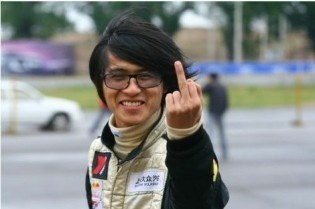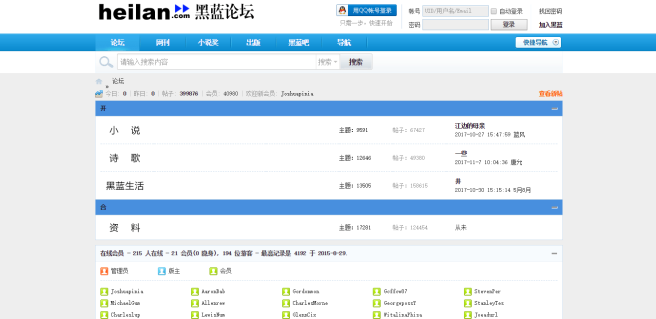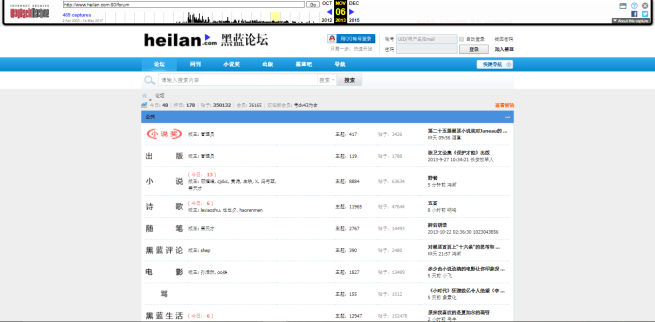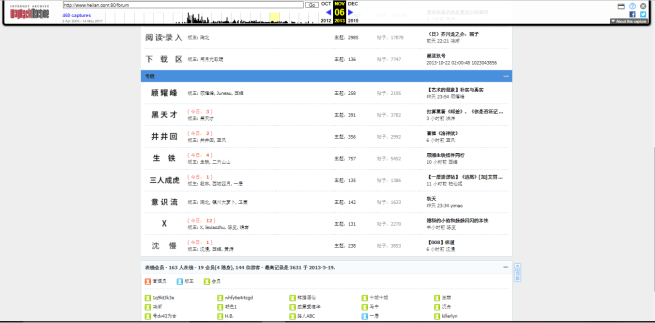I know – yawn. Who wants to know about the theory of some dude called Pierre Bourdell (or was it Bourden?) and Chinese online literature? I mean, how dull.
And yet, annoyingly so, the world of Chinese online literature analysed through Bourdieu’s theory of Cultural Production reveals some intriguing home truths about the current state of Chinese society. Quite interesting, really.
So, before having a peruse below, please see here and here for some short and sweet summaries of Bourdieu’s theory of Cultural Production to get yourself acquainted with dear Pierre.
950 words
~~~~~~~~~~~~~~~~~~~~~~~~~~~~~~~~~~~~~~~~~~~~~~~~~~~~~~
The literary scene in China is crap.
– Han Han, “The Han-Bai Controversy”, March 2006.

Despite this statement from the wildly popular and self-proclaimed literary bad boy, Han Han (b.1982), the Chinese literary scene has been economically bourgeoning in recent years, partly due to the fiscal success of Chinese online literature. Online literature in China began to take off in 2003 when Starting Point (qidian.com), a brand under Shanda Literature’s wing today, rolled out the country’s first online reading payment scheme. As a result, the market has grown by more than twenty per cent annually to RMB nine billion (GBP one billion) in 2016 (Yang 2017).
In this post, I argue that the application of Bourdieu’s theory of Cultural Production to the Chinese context broadens our understanding of how the online literary field functions. Specifically, I will focus on the website, Black and Blue (heilan.com), and investigate how this website represents the online literary field by concentrating on its progression since well-regarded academic Michel Hockx’s initial examination in 2013.
The purpose of this post is to argue that there is a greater need for a relational analysis of the online literary field as China continues its path towards modernity and innovation.
Hockx’s Analysis of Black and Blue
In Hockx’s impressive Internet Literature of China, his investigation into Black and Blue struck me as particularly notable due to its illuminating exegesis into the Chinese online literary scene. As Hockx describes, the authors on Black and Blue focus on “aesthetics” and strive to display “good technical writing skills” (Hockx 2015, 22). Yet, since its appearance on the online literary scene in 2003, Black and Blue has undergone much transformation, even since Hockx’s analysis of the site in 2013. The tracing of its development allows for a deeper understanding of the clash between market-driven literature and ‘pure literature’ (chun wenxue) in China’s online literary field.
In Hockx’s 2013 analysis of Black and Blue, he describes the website as split into two forums: the first focuses on different genres and the second contains sub-forums devoted to specific authors from the group. The second forum also had forums within it devoted to “stream of consciousness” (yishiliu), and, in keeping with their avant-garde aura, had a forum especially devoted to harsh criticism (ma) of up-and-coming writers’ works (Hockx 2015, p. 132). In November 2013, the site’s membership stood at just under thirty-six thousand with a low level of “social interaction” in the forums (Hockx 2015, p. 131).
What was impressive about the website was Hockx’s notation that for the past ten years, Black and Blue moderators had awarded a prize for the best works in the forums by including it in their webzine, Black and Blue. Hockx explains that originally readers could read the webzine online or go to the forums to download the whole issue by paying with “prestige points” (weiwang), which members collected by being active on the site (Hockx 2015, p. 133). Furthermore, the monthly webzines could also be downloaded for free on the e-reader site duokan.com.
The final feature of the website in 2013 was the quarterly prize for the author of the best story on the site which had been awarded with impressive consistency since 2003. The prize was normally cash and a product of donations from the group’s core members (Hockx 2015, p. 133).
Hockx concludes that Black and Blue seemed to function as a microcosm of Bourdieu’s literary field. It includes relevant agents of the field: authors, critics, editors and readers. All of whom subscribe to an autonomous aesthetic where fiction does not need to be defined by outside forces, political, economic or otherwise (Hockx 2015, p. 132).
Since 2013, however, Black and Blue has changed considerably. These developments have rendered Hockx’s argument for Black and Blue as a microcosm of Bourdieu’s literary field, unfortunately, moot.
What has Changed since Hockx’s Analysis?
Firstly, there are now no sub-forums – only three mini-forums for novels, poetry and ‘Black and Blue life’ (heilan shenghuo) exist (see Figures 1, 2.1 and 2.2 for comparison). Moreover, when I attempted to read a webzine, I was directed to the platform duokan.com and was asked to pay two yuan (approximately 20 pence) to download the webzine, rather than pay with “prestige points”. This was at a discounted price (fifty per cent) and with further investigation, it seemed that all previous journals were for sale at similar reduced prices. When directed to the payments page, I was only given the option to pay with Wechat Pay indicating the website’s angling towards users who read literature on mobile applications. This change is most likely a response to the increase in economic dominance of conglomerates, such as Shanda Literature, operating in the online literary field.



This development is also reflected in the website’s membership statistics (as shown above). In November 2013 there were thirty-six thousand members which increased to just under forty-one thousand members in November 2017 – an eleven per cent increase. Yet, these numbers are deceptive. When compared to the previous four-year period, from November 2009 to November 2013, Black and Blue membership grew thirty-three per cent indicating that Black and Blue’s rate of membership onboarding has decreased (Black and Blue 2017).
Furthermore, when navigated to Black and Blue’s webzine tab, the last published works were dated in 2014. This hiatus is also reflected in the awards: the last official prize was also awarded in 2014. Despite its appearance of a website that is no longer in use, of all Black and Blue’s forums, the only one that has been updated in 2017 is the forum devoted to Novels. The Black and Blue moderators seem to still be active as they continue to highlight certain threads as “recommended” (jian). Interestingly, activity on other forums seems to have petered out after November 2014.
Why has Black and Blue changed?
A reason for the website’s decrease in activity is due to the increase in dominance of other market-driven websites. The emergence of the conglomerate Shanda Literature seems to be casting an all-consuming shadow over the field of Chinese online literature as it subsumes independent online literature websites. Shanda Literature’s main rival, Tencent Literature, is also on the rise in the online literature world with the recent acquisition of Chuangshi and its successful IPO in 2017 (Yang 2017).
Can Black and Blue still be Considered a Microcosm of the Bourdieu Literary Field?
In some respects, yes.
The website still contains, as Bourdieu puts it, “producers of the work’s value” (the website’s moderators), “the consumers of the work” (the readers) and “the producers of the work” (the writers who post on the Novel forum) (Bourdieu 1994, 37).
Yet, there are many more reasons for the website to not function as any representation of Bourdieu’s literary field. Most noticeably, the website has stopped publishing content in the last three years indicating its depletion in literary autonomy. The website seems to have lost its publishers, its critics and has come under the ever-growing influence of the market with the website’s introduction of monetary payment for its webzines and books. It appears to be that the market-driven 1990s has caught up with Black and Blue and has more than threatened its literary autonomy, it has considerably diminished it.
In sum…
Han Han may call the Chinese literary field “crap”, but that doesn’t warrant its neglect in analysis. In fact, it requires further examination to understand more deeply the changeable nature of the field. Through the examination of a small sampling of the Chinese online literary field, its fate seems to be that of heteronomy, not autonomy. Online literature cannot be expected to produce culturally independents works. The Chinese online literary field has become another commercial market place; websites that were autonomous, like Black and Blue, have recently monetized to survive in an ever-commercializing and ever-changing China.
References
Black and Blue 2013, Black and Blue website, using The Way Back Machine, viewed 30 November, 2017, https://web.archive.org/web/20091202030718/http://www.heilan.com:80/forum/.
Black and Blue 2017, Black and Blue website, viewed 30 November, 2017, http://www.heilan.com/forum/.
Bourdieu, P 1994, The Field of Cultural Production, Columbia University Press, New York.
Han, H 2006, ‘Wentan shi ge pi, shei dou bie Zhuang bi’ (The Literary Scene is Crap and People Should Stop Acting Fucking Pretentious), viewed 30 November 2017,http://web.archive.org/web/20060322080202/http://sina.com.cn/u/4701280b010002k.
Hockx, M 1999, The Literary Field of Twentieth-century China, University of Hawaii, Honolulu.
———2003, Questions of Style: Literary Societies and Literary Journals in Modern China 1911-1937, Brill, Leiden and Boston.
———2015, Internet Literature in China, Columbia University Press, New York.
Yang, Y 2017, ‘China Literature shares soar 82% in Hong Kong after IPO’, Financial Times, November 2017, viewed 30 November, 2017, https://www.ft.com/content/97600d48-06f6-3b40-9c76-c9e669054372.

